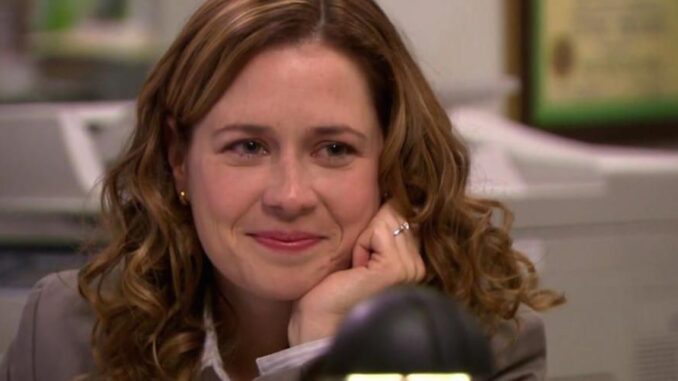
The hum of the kitchen, usually a symphony of controlled chaos, felt like a dissonant drone. Pam stood amidst it, a statue carved from exhaustion, one hand still gripping the forgotten grocery list, the other hovering over a cold cup of coffee. For years, she had been a master architect of her own life, building an edifice of productivity and presence. She was the project manager who always hit her deadlines, the mother who volunteered for the PTA, the wife who remembered anniversaries, the friend who always listened. She was, to all outward appearances, enough. More than enough, in fact. She was the gold standard, the woman who seemed to glide through life with an effortless grace, balancing a dozen spinning plates without a wobble.
But the plates were no longer spinning. They were teetering, rattling, sending out tremors that resonated deep within her bones. The carefully constructed façade, built brick by painstaking brick, was showing hairline cracks. She had perfected the art of the quick smile, the reassuring nod, the breezy "I've got this," even as her internal monologue screamed the opposite. Every morning was a new performance, every task a new demand on a finite resource she was rapidly depleting. She told herself that strength was in enduring, that love was in giving, that success was in never admitting defeat. To be "not enough" was a weakness, a personal failing she simply could not afford. It was a truth she had ruthlessly suppressed, burying it under layers of to-do lists and forced optimism.
The moment itself wasn't grand. There was no dramatic collapse, no sudden, earth-shattering revelation delivered by a cosmic voice. It was mundane, exquisitely so, as most profound shifts often are. It began with the school bell, a shrill, insistent ring that meant her youngest, Leo, was home. She was on a conference call, headphones clamped tight, trying to decipher complex financial data while simultaneously stirring pasta sauce and mentally re-scheduling a doctor’s appointment. Leo, typically independent, walked in holding a crumpled art project – a clay monstrosity of questionable origin – his lower lip trembling. "Mommy," he whispered, his voice thin, "I forgot to tell you. It's for the art show tomorrow. And it broke a little."
A small thing. A broken clay sculpture. A forgotten deadline. In any other universe, on any other day, Pam would have taken it in stride. She would have smiled, offered comfort, found the superglue, made it right. But on this day, the small, tearful voice was the final pebble on an already overflowing cart. The financial jargon in her ear became gibberish. The steam from the pasta pot fogged her glasses, blurring the edges of her precarious existence. She looked at Leo's worried face, then at the broken clay, then at the flickering cursor on her laptop screen, demanding her attention.
And then, the words came. They weren't spoken out loud, not at first. They formed in the crucible of her mind, sharp and undeniable, like shards of glass cutting through the thick fog of denial: I am not enough.
The admission was a physical blow. The air left her lungs. Her hand dropped the grocery list, and it floated to the linoleum floor like a white flag. A strange, quiet stillness descended, muting the kitchen's hum, silencing the voice in her ear, dimming the anxious flicker of the screen. Her eyes stung, not with tears of sorrow, but with the searing clarity of a long-avoided truth. It wasn't about the art project, or the meeting, or the sauce. It was about everything. It was about the gnawing emptiness behind the frantic activity, the hollow ache beneath the practiced smile.
In that singular moment, kneeling beside her son's broken clay, Pam admitted defeat. Not defeat in the face of a challenge, but defeat in the relentless, impossible battle against her own human limits. She admitted that she couldn't be everything to everyone all the time. She couldn't always fix it, couldn't always juggle it, couldn't always be the unwavering pillar of strength. The admission was terrifying, a stripping away of identity, a letting go of the tightly wound coil of self-expectations.
But then, something else happened. Beneath the initial shock of surrender, a fragile, unexpected lightness began to bloom. The weight she hadn't even realized she was carrying, the invisible burden of perfection, began to lift. The "not enough" wasn't a condemnation; it was an act of grace. It was the recognition that she was finite, flawed, and beautifully human. It was the moment she stopped trying to be a god and simply accepted being Pam.
The world didn’t end. The sky didn't fall. Leo, sensing a shift, not of anger but of something profound, quietly nudged the clay towards her. Pam looked at him, truly looked, without the filters of stress or obligation. And for the first time in a long time, she felt a different kind of strength, one rooted not in boundless capacity, but in the radical honesty of her own vulnerability. The pieces of the clay model might still need glue, but the pieces of Pam, scattered and reassembled by truth, were finally beginning to fit in a new, more authentic way. The moment Pam admitted she was not enough was, in fact, the moment she truly began to be.